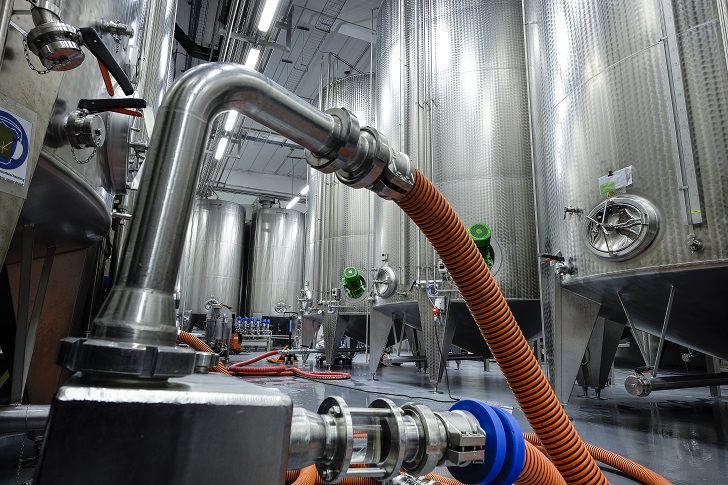
When fruit producers were hit by extreme weather and late frosts, production was affected and yield dropped. However, high-efficiency decanter technology provided the reliability needed to help manufacturers maintain productivity and the high quality demanded by the market.
The extreme weather and late frosts in April and May last year led to considerable losses in the harvest of many European crops with tonnage being 20% down on last year. Poland and Belgium were particularly badly hit. It is especially during these difficult times that manufacturers need all the help they can to maximize output and profitability.
Market demands
The need for reliability, quality and high production is not limited to periods of shortage. Also during times of plenty, manufacturers strive for maximum yields and the highest quality product to satisfy market demands. GEA has developed its CF decanter series specifically to meet the needs of the beverage industry.
Key features of the CF series include: its ability to achieve juice clarity with less than 0.8% volume of solids; very high yields of up to 76% (depending on the variety of apple); and GEA’s patented hydrohermetic sealing that excludes oxygen from the bowl, maintaining the taste and shelf-life of the product while using the minimum of ascorbic acid in the process. Using a two-stage process it’s possible to increase overall yield up to 92% by diluting the first-stage pomace and adding enzymes.
Highest g-forces
According to the manufacturer, the high yield and product clarity are achieved through the CF series having the highest bowl speed and, consequently, the highest g-forces on the market. Flushing nozzles located in the inner and outer process area allow simple cleaning during production. Separating juice from fruit
The GEA CF decanter is used by Konings, one of Belgium’s major manufacturers of beverages, both alcohol-based such as gin, cider, liqueurs, cocktails, etc. and alcohol-free fruit and vegetable juices, including nectar, energy and health drinks, etc. The decanter has a key function to separate the juice from the fruit. The 40,000 to 50,000 tonnes of fruit are processed there annually, peaking at 3,000 tonnes a week during the fruit season and reliability make or breaks the reputation of this machine.
The GEA decanter is installed at Konings 2, one of the five facilities of the Konings Group, where primarily apples and pears are processed into apple juice, pear juice, concentrates or fermented products (cider and beer). “During the peak period between September and October we process 3,000 tonnes of fruit a week,” said Konings Project Manager Wim Vandeput. “So, we need to have full confidence in the decanter: Reliability is crucial. We can bring in two other decanters as a fall back, but the GEA CF 6000 is in the front line.”
The second criterion was of course how well the decanter would perform. “Both with fresh fruit in the autumn and with fruit from cold stores at other times of the year,” explained Wim. “To achieve good performance, it’s important for us to be able to control specific settings on the decanter. While we were commissioning the machine, our experienced operators and the people from GEA put their heads together to come up with the ideal solution. I think I can safely say that both parties learned a lot from each other, working in a true spirit of partnership.”
Hermetically sealed The design of the GEA CF decanter was also a factor in the decision to purchase this particular model. “This decanter is hermetically sealed,” Wim explained. “We can inject nitrogen, which causes the juice to absorb a small amount of oxygen when the decanter is in use. This means that the fruit cannot oxidise, resulting in a better end product.”
The decanter had to be very easy to maintain. “The machine is serviced once a year,” said Wim. “Apart from occasional lubrication, there shouldn’t be any problems. With its hygienic design, this machine is ideal for processing foodstuffs and is also easy to clean.”
Nobody can control the weather but its effect, particularly on vulnerable fruit producers, can be devastating as has been seen in Europe last year. The CF decanter series from GEA, however, has the ability to maximize output, quality and profitability for manufacturers whatever the weather.






